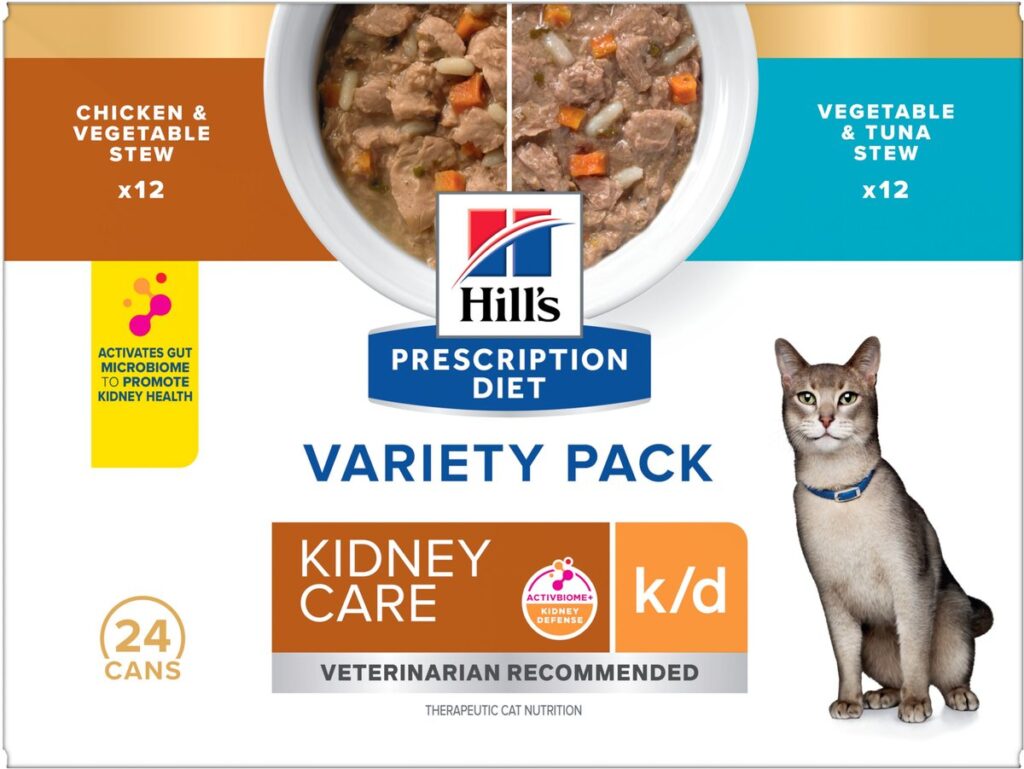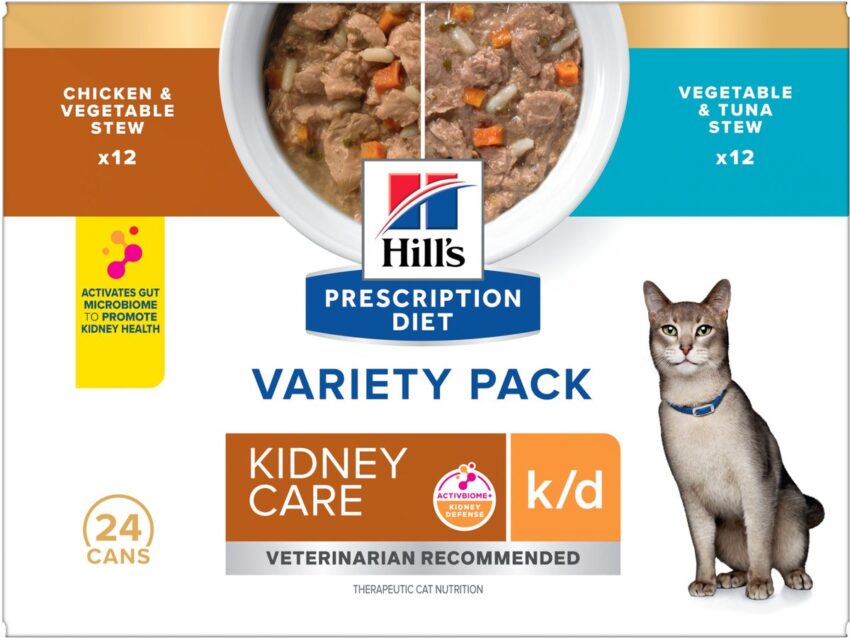
The Ultimate Guide to Cat Food for Kidney Health: Choosing the Right Diet
Chronic kidney disease (CKD), also known as chronic renal disease (CRD), is a common ailment affecting cats, particularly as they age. Managing this condition effectively often relies heavily on dietary adjustments. Selecting the right cat food for kidney health is crucial for slowing the progression of the disease and improving your cat’s quality of life. This comprehensive guide will provide you with the information you need to make informed decisions about your cat’s diet, covering everything from understanding kidney disease to choosing the best food options.
Understanding Feline Kidney Disease
Kidneys play a vital role in a cat’s overall health. They filter waste products from the blood, regulate blood pressure, produce hormones, and maintain the balance of electrolytes. When the kidneys are damaged, they become less efficient at performing these functions, leading to a buildup of toxins in the body. This is why selecting appropriate cat food for kidney issues is so important.
Common Causes of Kidney Disease in Cats
- Age-related degeneration: As cats age, their kidney function naturally declines.
- Infections: Bacterial or viral infections can damage the kidneys.
- High blood pressure: Hypertension can put a strain on the kidneys.
- Kidney stones: Blockages can damage kidney tissue.
- Toxins: Exposure to certain toxins, such as antifreeze, can cause acute kidney failure.
- Certain medications: Some drugs can have adverse effects on kidney function.
Symptoms of Kidney Disease in Cats
Recognizing the symptoms of kidney disease early on is crucial for prompt treatment. Common signs include:
- Increased thirst and urination (polyuria/polydipsia)
- Weight loss
- Decreased appetite
- Lethargy
- Vomiting
- Diarrhea
- Bad breath (uremic breath)
- Dehydration
If you notice any of these symptoms in your cat, it’s essential to consult with your veterinarian immediately. Early diagnosis and intervention can significantly improve your cat’s prognosis. Discussing the best cat food for kidney support with your vet should be part of your plan.
Key Nutritional Considerations for Cats with Kidney Disease
Dietary management is a cornerstone of managing feline kidney disease. The right cat food for kidney health can help reduce the workload on the kidneys, control the buildup of toxins, and maintain electrolyte balance. Here are the key nutritional considerations:
Protein Content
Historically, it was believed that limiting protein intake was beneficial for cats with kidney disease. However, current research suggests that moderate protein restriction is more appropriate. Severely restricting protein can lead to muscle loss and malnutrition. The goal is to provide enough protein to maintain muscle mass without overloading the kidneys. Look for cat food for kidney support that offers moderate protein levels from high-quality sources.
Phosphorus Levels
Phosphorus is a mineral that plays a role in bone health. However, in cats with kidney disease, the kidneys are less efficient at eliminating phosphorus, leading to a buildup in the blood. High phosphorus levels can worsen kidney damage and contribute to other complications. Choosing cat food for kidney health with low phosphorus content is crucial. Many veterinary diets are specifically formulated to address this issue.
Sodium Content
Excessive sodium intake can contribute to high blood pressure, which can further damage the kidneys. Therefore, it’s important to choose cat food for kidney health with controlled sodium levels. Avoid foods that are high in salt or contain added sodium.
Potassium Levels
Some cats with kidney disease may experience potassium depletion due to increased urination. Potassium is essential for nerve and muscle function. If your cat’s potassium levels are low, your veterinarian may recommend supplementing their diet or choosing cat food for kidney support that is higher in potassium.
Omega-3 Fatty Acids
Omega-3 fatty acids, particularly EPA and DHA, have anti-inflammatory properties that can benefit cats with kidney disease. They may help improve kidney function and reduce inflammation. Look for cat food for kidney health that contains added omega-3 fatty acids, such as fish oil.
Moisture Content
Dehydration is a common problem in cats with kidney disease. Providing adequate hydration is essential for supporting kidney function. Wet cat food for kidney issues has a much higher moisture content than dry food, which can help keep your cat hydrated. If your cat prefers dry food, make sure they have access to plenty of fresh water and consider adding water to their food.
Choosing the Right Cat Food for Kidney Health
Selecting the right cat food for kidney health can be overwhelming, given the many options available. Here are some tips to help you make the best choice:
Consult with Your Veterinarian
The first and most important step is to consult with your veterinarian. They can assess your cat’s individual needs and recommend the most appropriate diet based on their stage of kidney disease, overall health, and any other underlying conditions. They can also help you determine the optimal protein, phosphorus, and sodium levels for your cat. Your vet can guide you towards the best cat food for kidney disease management.
Read Labels Carefully
When evaluating cat food for kidney disease, carefully read the ingredient list and nutritional information. Look for foods that are specifically formulated for cats with kidney disease and that meet the key nutritional considerations mentioned above. Pay attention to the protein, phosphorus, sodium, and omega-3 fatty acid content. Avoid foods that contain artificial colors, flavors, or preservatives.
Consider Veterinary Diets
Veterinary diets are specifically formulated to meet the needs of cats with specific health conditions, including kidney disease. These diets are typically lower in phosphorus and sodium and contain controlled levels of protein. They may also contain added omega-3 fatty acids and other beneficial nutrients. Some popular veterinary diets for cats with kidney disease include:
- Hill’s Prescription Diet k/d
- Royal Canin Renal Support
- Purina Pro Plan Veterinary Diets NF Kidney Function
Transition Gradually
When switching your cat to a new diet, it’s important to do so gradually to avoid digestive upset. Start by mixing a small amount of the new food with your cat’s current food, gradually increasing the proportion of the new food over several days or weeks. This will give your cat’s digestive system time to adjust to the new food. The right cat food for kidney health won’t matter if your cat refuses to eat it.
Monitor Your Cat’s Response
After switching to a new diet, closely monitor your cat for any changes in their appetite, weight, energy level, or stool consistency. If you notice any adverse effects, such as vomiting, diarrhea, or decreased appetite, consult with your veterinarian. It may be necessary to adjust the diet or try a different cat food for kidney support.
Other Supportive Measures for Cats with Kidney Disease
In addition to dietary management, there are other supportive measures you can take to help manage your cat’s kidney disease:
- Provide plenty of fresh water: Encourage your cat to drink by providing multiple water bowls throughout the house and considering a water fountain.
- Administer subcutaneous fluids: Your veterinarian may recommend administering subcutaneous fluids at home to help keep your cat hydrated.
- Administer medications: Your veterinarian may prescribe medications to help manage specific symptoms of kidney disease, such as high blood pressure, anemia, or nausea.
- Regular veterinary checkups: Regular checkups are essential for monitoring your cat’s kidney function and adjusting their treatment plan as needed.
Conclusion
Managing feline kidney disease requires a multifaceted approach, with dietary management playing a central role. Choosing the right cat food for kidney health is crucial for slowing the progression of the disease and improving your cat’s quality of life. By consulting with your veterinarian, carefully reading labels, and monitoring your cat’s response to the diet, you can make informed decisions about their nutritional needs. Remember, every cat is different, and what works for one cat may not work for another. Patience, diligence, and close collaboration with your veterinarian are key to providing the best possible care for your feline companion with kidney disease. With the right cat food for kidney issues and proper care, your cat can live a longer and more comfortable life.
By understanding the importance of appropriate cat food for kidney disease, you’re already taking significant steps toward improving your pet’s well-being. Remember to always consult with your veterinarian for personalized advice and treatment plans.
[See also: Recognizing Early Signs of Kidney Disease in Cats]
[See also: Hydration Tips for Cats with Kidney Problems]
[See also: Understanding Phosphorus Levels in Cat Food]
